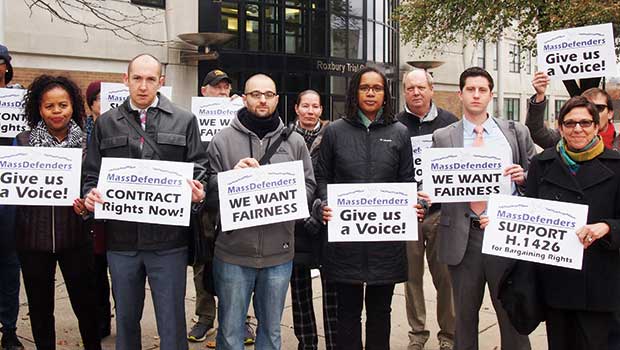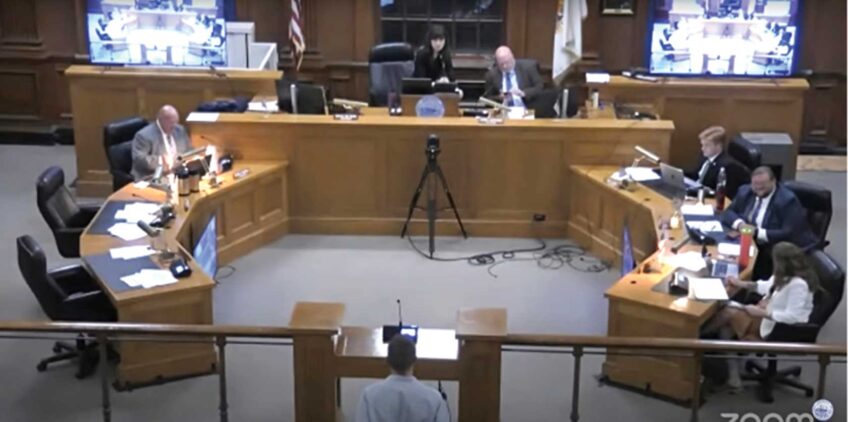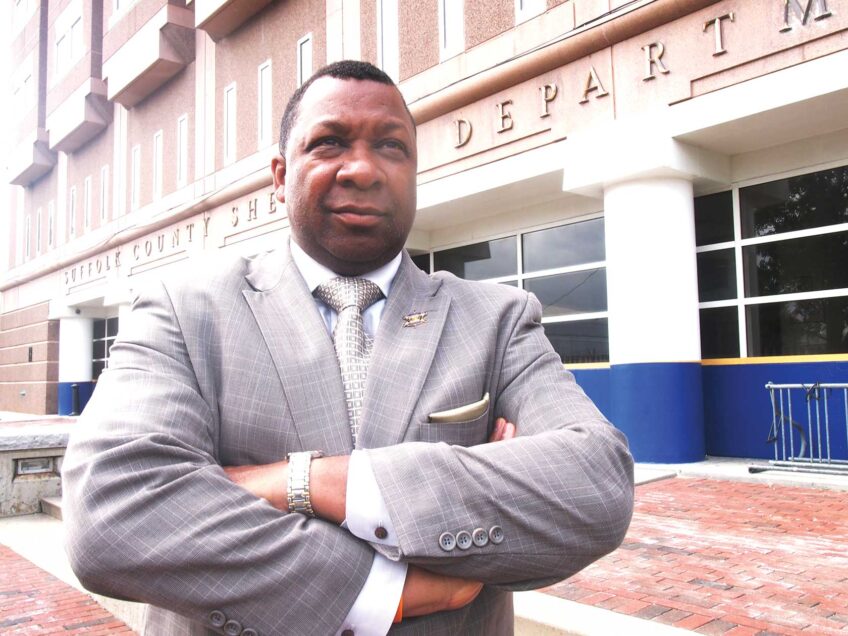
While legislators were debating reforms aimed at making the state’s criminal justice system more fair, the public defenders, social workers, paralegals and investigators who work for the state’s Committee for Public Council Services were fighting for a reform they say would go a long way toward ensuring that indigent defendants get a fair trial: collective bargaining rights.
Although those who work in public defenders offices are paid by the state and receive benefits and pensions from the state, they were never written into state law as employees of CPCS, and, therefore, are not permitted to collectively bargain for increases in wages or improvements in working conditions.
Consequently, the employees say, their salaries lag behind those of attorneys and social workers in other state agencies.
“It’s the lowest-paid public defender office in the country, allowing for the cost of living here,” said Chris Gonsalves, an investigator for the CPCS’s Roxbury Defenders Unit. “We’re paid $10,000 to $20,000 less than attorneys and social workers who work for the Department of Children and Families.”
On Monday, Gonsalves and other CPCS employees demonstrated in front of Roxbury District Court before heading into work. Along with CPCS employees who held similar demonstrations in Worcester and Springfield, the Roxbury workers are seeking support for House Bill 1426, filed by Boston Rep. Michael Moran and sponsored in the Senate by Sen. Jason Lewis of Winchester.
“We as public defenders are protecting the rights of our clients in the courts,” said Aida Fitzgerald, a trial attorney in the CPCS Roxbury Mental Health office. “We’re asking that our rights be protected in the workplace.”
High turnover
With low pay for public defenders, CPCS employees say, turnover in their offices is high and staffing levels often fail to keep pace with the volume of work. As a result, the low-income defendants, children and state-dependent individuals who rely on their services are often put at a disadvantage.
“People work for a few years, then they start a family and they move on,” said attorney Daniel Werner. “We want to retain experienced people who have worked in the system for a long time.”
Currently, the CPCS workers are unable to collectively bargain because, by law, the CPCS agency that employs them is not listed as their employee of record. Court officers, janitors, court clerks, police and prosecutors have the right to join public employee unions; their membership in public employee unions means they’re able to advocate for salaries and raises. CPCS employees are at the mercy of the Legislature, which often underfunds their line item in the state budget, according to SEIU Local 888 Political Director Daniel Hoffer.
Across the state, there are more than 750 people employed by CPCS who would receive collective bargaining rights, if the legislation were to pass. While the bill has broad support in the House and Senate, a similar bill filed in 2015 and 2016 stalled in the Ways and Means Committee.







